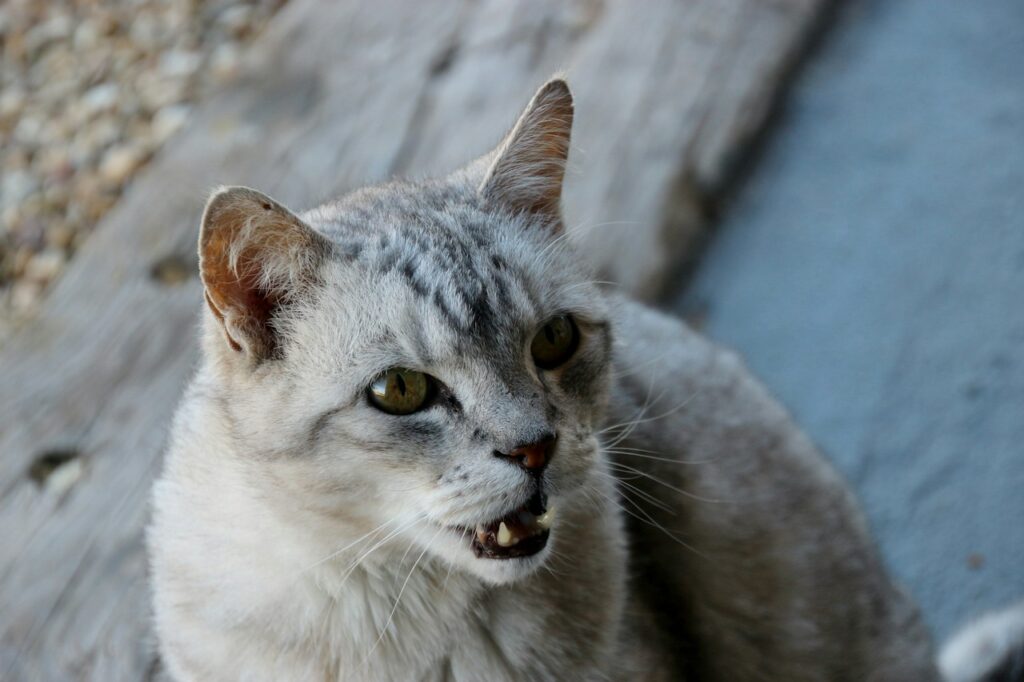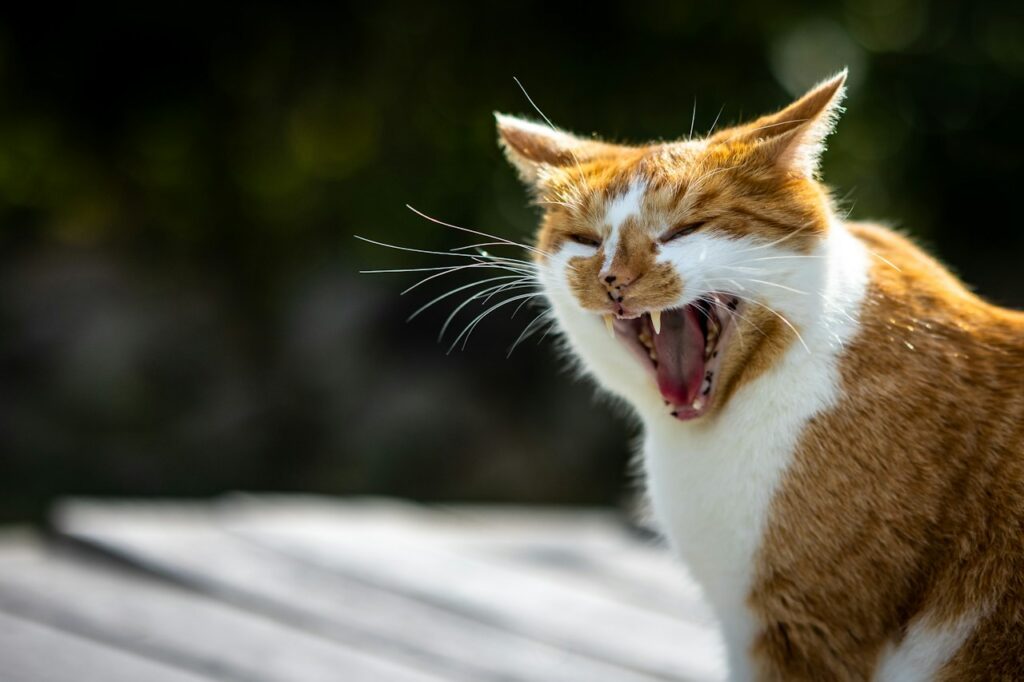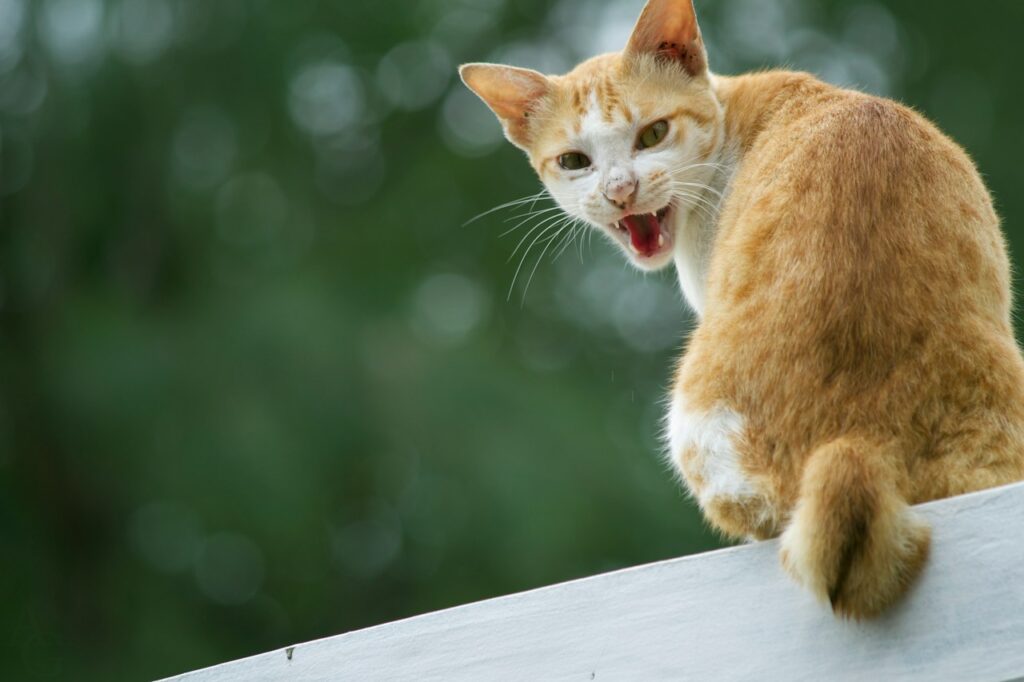Cats are interesting animals with mysterious habits, and one puzzling behavior they do is called “blowing.” Blowing can happen for different reasons, and we’ll explore them here.
Table of Contents
Read Also: How long can a dog go without eating?

So, Why do cats Blow?
Grooming Rituals:
Cats like to keep themselves clean. When they groom, they use their mouths to nibble and lick their fur. Sometimes, this makes them blow air through their lips. It’s a natural part of their grooming routine.
Communication and Affection:
Cats use sounds and body language to talk to humans and other cats. Blowing might be a way for them to communicate or show affection. Some cats blow air to connect with their human friends, especially when they’re bonding.
Playful Behavior:
Cats love to play, and blowing can be a playful act. It’s like how dogs bark or wag their tails when they’re happy. Blowing for cats can be a way of expressing joy and excitement during playtime.
Discomfort or Irritation:
Sometimes, blowing can mean a cat is uncomfortable or irritated. If a cat has problems with its teeth or breathing, it might blow air as a response to feeling uneasy. If you notice this a lot, it’s good to check with a vet.
Individual Personality Traits:
Just like people, every cat is unique. Some cats may blow more often because of their personality, while others may never do it. Learning about your cat’s habits helps you understand why they do certain things, including blowing.
The cat blows for any reason
The cat blows sometimes, either to protect itself or to be safe. But what should we do about it? First, we need to figure out why the cat acts this way because each situation has a different answer.

The cat Blow at you
If the cat blows at you, don’t worry, it doesn’t mean the cat doesn’t like you. It’s a way for the cat to tell you to be careful and stay away. Even if you’re like family to the cat, there are times it might feel threatened and blow at you.
To be safe, always approach the cat calmly and let it sniff you before petting. If the cat blows when you pet it, it means it’s too excited, so it’s better to leave it alone.
But if the cat blows every time you touch a specific part of its body, it might be in pain. In that case, it’s a good idea to take the cat to the vet.
The cat blows at a dog
It can be tricky to figure out why a cat blows at a dog. The cat might be scared or have an unfriendly attitude towards the dog. It’s crucial to watch how the cat is acting. No matter the reason, here are some things to do:
- 1. Give the cat its safe place where it can hide and feel protected. This helps avoid attacks and blowing.
- 2. If the cat blows, try to distract it with games or things it enjoys.
- 3. Treat both animals the same way. Show love to both the cat and the dog equally.
The cat Blow at the new cat
If a cat blows at a new kitten, it’s normal because the cat is showing that it’s their space. If the cat keeps blowing at the kitten, don’t make them stay together, and don’t get mad at the cat. It’s important to treat both cats the same way and make sure they each have their own space.
When to consult the vet:
If your cat acts differently or shows signs of being not well, it’s important to talk to a vet. Breathing problems in cats can happen because of allergies, infections, tumors, or blockages, and only a vet can find out why.
Also, if your cat already has something like asthma or heart disease, keep an eye on their breathing. If you see any changes or things that seem strange, it’s good to ask a vet.
Remember, as a cat owner, you’re important for your pet’s health. Knowing what’s normal for their breathing and noticing any possible problems can help keep your cat happy and healthy for a long time.

In the end:
Cats blowing can happen for different reasons, and cat owners need to watch and understand their pets. Whether they’re grooming, talking to us, playing, or feeling uneasy, blowing is one of the many interesting things cats do. Learning about these behaviors helps us connect better with our mysterious and purring cat friends.